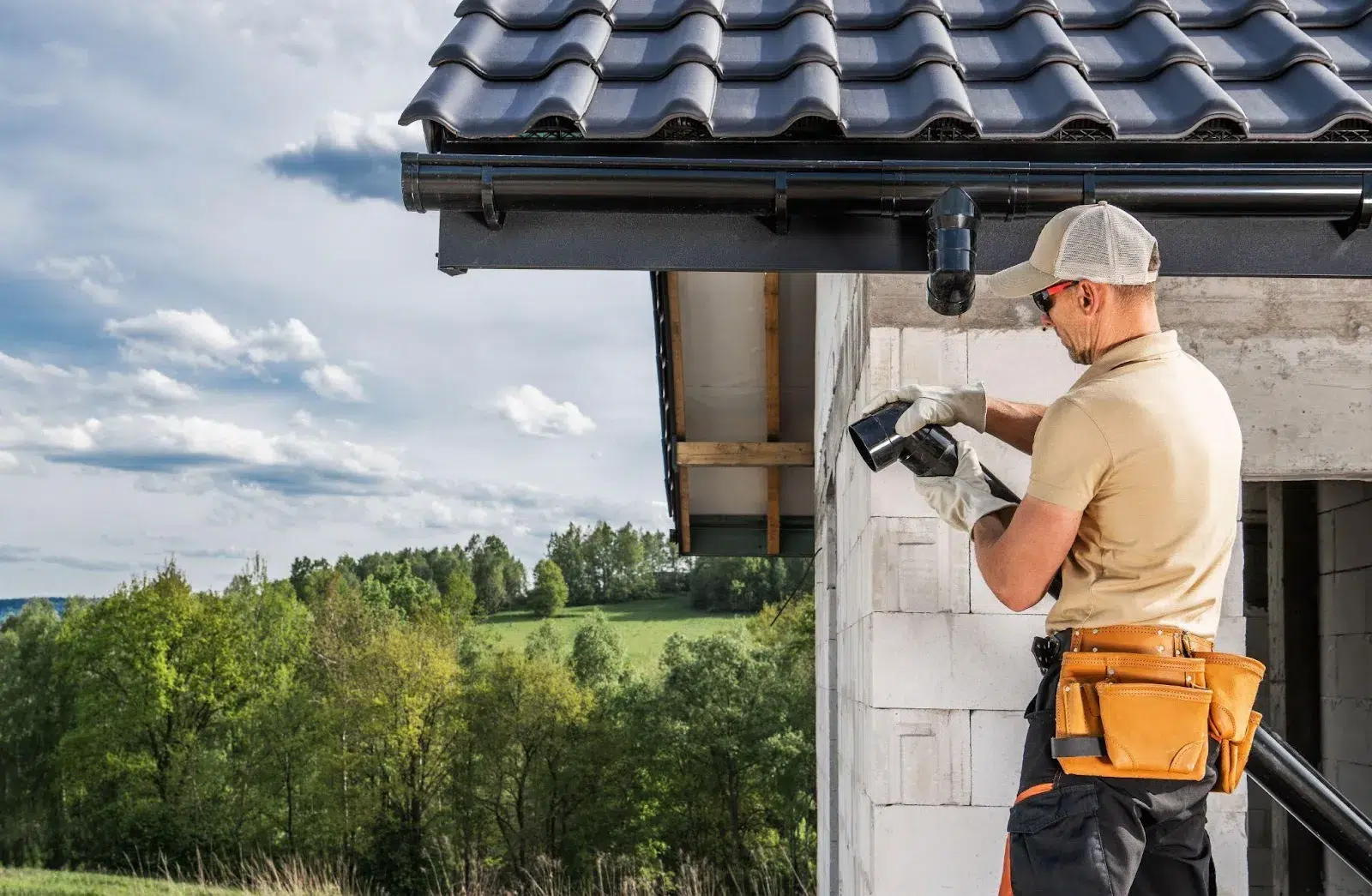Maintaining a vibrant lawn in Hamilton requires more than just occasional mowing. One essential aspect of lawn care that often gets overlooked is mulching. Knowing the best time to spread mulch is crucial, as it can significantly impact the effectiveness of this practice. Many homeowners, especially seniors in Hamilton, may not fully appreciate the benefits of mulching. However, it’s a valuable investment that plays a crucial role in lawn health and aesthetics.
So, why is mulching so important?
First, mulch helps retain soil moisture, reducing the need for frequent watering. It also provides insulation, keeping the soil temperature stable.
This is particularly beneficial in Hamilton’s fluctuating climate, where extreme temperatures can impact plant health. Additionally, mulch suppresses weeds, which compete with your grass for nutrients and water.
By applying mulch, you create a barrier that prevents weeds from taking over, thus ensuring your lawn remains lush and healthy.
Hamilton’s seasons significantly influence when to spread mulch.
- During spring, mulching helps prepare your lawn for the growing season by providing essential nutrients. In summer, it helps retain moisture and cools the soil.
- Autumn is an ideal time to mulch as well, as it prepares your garden for winter by protecting roots from frost and reducing erosion.
- Winter mulching, although less common, can provide insulation against severe cold and protect plants.
Leaving your lawn unattended can lead to several issues.
Without proper mulching, your lawn may suffer from moisture loss, weed infestation, and temperature extremes. These problems can ultimately diminish the beauty and health of your yard.
Before we dive deeper, let’s clarify what mulch is and how it benefits lawn maintenance, particularly for seniors and homeowners in Hamilton.
What is Mulch?
Mulch is a protective layer spread over the soil’s surface, often made from organic or inorganic materials.
For seniors and homeowners in Hamilton, mulch simplifies lawn care by reducing the need for frequent watering and limiting weed growth, making garden upkeep easier and more manageable.
Types of Mulch
Mulch comes in two main varieties:
- Organic Mulch
Includes natural materials like wood chips, leaves, and compost. As it decomposes, it enriches the soil with nutrients, improves its texture, and retains moisture.
- Inorganic Mulch
Made from non-biodegradable materials like gravel or rubber. It provides long-term coverage, effectively controls weeds, and helps with moisture retention but doesn’t add nutrients to the soil.
Functions of Mulch in Hamilton’s Lawns and Gardens
Mulch plays several key roles:
- Moisture Retention: Helps keep the soil moist by reducing evaporation.
- Weed Suppression: Blocks sunlight, hindering weed growth.
- Temperature Control: Insulates the soil, protecting plant roots from temperature extremes.
- Soil Protection: Prevents erosion by reducing runoff during heavy rains.
Proper mulching enhances the health and beauty of your lawn, making it an invaluable practice for any homeowner in Hamilton.

When Is The Best Time To Spread Mulch In Hamilton?
Hamilton’s unique climate, characterized by distinct seasons, requires strategic mulching to protect and nourish your lawn.
Mulching at the right time can maximize its benefits, ensuring your garden thrives throughout the year.
1. Spring Mulching
- Benefits: Mulch in spring to prevent weeds from sprouting and to conserve soil moisture as temperatures rise.
- Best Time: Apply mulch when the soil has started to warm but before plants become fully active to support early growth.
- Tips: Remove any old mulch and debris from winter. Turn the soil lightly to improve aeration, then apply a fresh layer of mulch to create a nurturing environment for emerging plants.
2. Summer Mulching
- Benefits: Mulching in summer reduces evaporation, keeps the soil cool, and helps retain moisture during the hottest months.
- Best Time: Spread mulch in early summer, before peak heat, to protect roots and prevent heat stress.
- Tips: Use a lighter layer of mulch to avoid overheating the soil. Regularly check for pests and fungi, and ensure mulch is kept away from plant bases to prevent rot and disease.
3. Autumn Mulching
- Benefits: In autumn, mulch acts as an insulator, protecting plant roots from the upcoming winter and preventing soil erosion from fall rains.
- Best Time: Apply mulch after the first frost, when plants are preparing for dormancy, but before the ground freezes.
- Tips: Opt for a thicker, organic mulch that will break down over winter, enriching the soil for spring. This layer should be deep enough to shield roots from freezing temperatures.
4. Winter Mulching
- Benefits: Winter mulching provides critical protection against extreme cold and temperature fluctuations, safeguarding plant roots.
- Best Time: Spread mulch in early winter, ideally before the ground is completely frozen, to trap warmth and protect soil structure.
- Tips: Choose heavier materials like straw or wood chips to keep the mulch in place during snow and frost.
Avoid overly thick layers, which can trap moisture and potentially cause root rot.
By aligning your mulching practices with Hamilton’s seasonal climate patterns, you can ensure your lawn remains healthy and resilient year-round.
Read our latest blogs on How Long To Let New Grass Grow Before Cutting and When To Start Spring Lawn Care
5 Signs of Improperly Applied Mulch in Hamilton
Improper mulching can cause more harm than good. Here are five signs that mulch has been applied incorrectly:
- Too Thick: A mulch layer thicker than 3 inches can suffocate plant roots, leading to poor growth and increased moisture retention, which can cause root rot.
- Mulch Volcanoes: Piling mulch against tree trunks or plant stems creates “volcanoes” that can lead to rot, attract pests, and encourage fungal growth.
- Foul Odor: If mulch smells sour or rotten, it’s decomposing anaerobically, which can release harmful toxins into the soil.
- Excessive Moisture: Mulch that remains constantly wet can foster mold and mildew, which may damage plants and lead to poor soil health.
- Weed Growth: If weeds are growing through or on top of mulch, it indicates the layer is too thin or not dense enough to suppress them.
How Does Mulching Impact Water Usage in Hamilton Gardens?
Mulching has a significant impact on water usage in Hamilton’s gardens:
- Moisture Retention: Mulch helps retain soil moisture by reducing evaporation, allowing you to water less frequently.
- Soil Insulation: By maintaining consistent soil temperatures, mulch reduces the need for frequent watering during temperature extremes.
- Reduced Runoff: Mulch prevents water runoff by allowing rainwater to penetrate the soil more effectively, reducing waste and ensuring plants get the hydration they need.
- Improved Soil Health: Organic mulch decomposes and enriches the soil, improving its ability to retain water and reducing the overall need for irrigation.
- Water Efficiency: By optimizing water retention, mulching can significantly lower water usage, leading to more efficient and sustainable garden care.
How Mulch Helps Seniors Save on Water Bills & Maintenance Costs

Mulching is particularly beneficial for seniors looking to reduce garden maintenance costs:
- Reduced Watering Frequency: With mulch conserving soil moisture, seniors can water their gardens less often, leading to lower water bills.
- Less Frequent Weeding: Mulch suppresses weed growth, reducing the time and effort needed for weeding, which can be physically demanding.
- Soil Enrichment: Organic mulch enriches the soil as it breaks down, decreasing the need for expensive fertilizers and soil amendments.
- Temperature Regulation: By insulating the soil, mulch protects plants from temperature extremes, reducing the risk of plant damage and the need for costly replacements.
- Extended Plant Life: Healthy, well-mulched plants are more resilient, reducing the need for frequent replanting, which can save on purchasing new plants and related maintenance expenses.
Do you Need Help Saving Money on Lawn Maintenance in Hamilton?
Maintaining a beautiful lawn can be costly and time-consuming, especially for seniors. But with the right care, you can save both money and effort.
At Custodia, we specialize in helping seniors in Hamilton keep their lawns in top shape without breaking the bank.
From expert mulching that reduces water bills to comprehensive lawn care that cuts down on maintenance costs, we’re here to make your life easier.
Ready to Start Saving?
Call us today at 1-833-410-4357 or schedule a free consultation online to learn how we can help you maintain a beautiful, low-maintenance lawn all year round.




